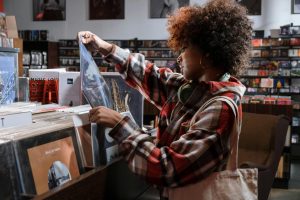The Impact of Personalization on the Retail Experience
The retail experience has drastically transformed over the years, with the rise of technology and the ever-changing consumer expectations. Personalization has become an integral part of this transformation, shaping the way retailers interact with their customers and enhancing their overall shopping experience. In today’s digital world, where individuals crave personalized experiences, retailers need to understand the impact of personalization on the retail experience and how it can be used to drive their business forward.
The Importance of Personalization in Retail
Personalization refers to tailoring the shopping experience according to individuals based on their preferences, purchase history, and behavior. This customized approach makes customers feel seen, heard, and valued, resulting in increased customer satisfaction and loyalty. In a competitive retail landscape, where customers have infinite choices, personalization has become a crucial tool for retailers to stand out and attract and retain customers.
Enhanced Customer Engagement
One of the biggest impacts of personalization on the retail experience is enhanced customer engagement. By providing personalized recommendations and offers, retailers can capture the attention of their customers and keep them interested in their brand. This engagement leads to increased sales and an improved customer experience. A study by Deloitte found that 71% of consumers who receive a personalized retail experience, have a higher chance of making a purchase from that retailer.
Improved Customer Loyalty
Personalization has a significant impact on customer loyalty. By establishing a more personal relationship with their customers, retailers can foster a sense of loyalty and trust. A study by Infosys found that 86% of consumers say that personalization plays a role in their purchasing decisions. This shows that by implementing personalization strategies, retailers can increase customer retention and build a loyal customer base.
How Personalization is Shaping the Retail Experience
Tailored Product Recommendations
Personalization allows retailers to tailor product recommendations to individual customers based on their preferences and past purchases. This not only makes the shopping experience more convenient for customers but also increases the chances of a successful sale. By analyzing customer data, retailers can make accurate product recommendations, leading to a higher conversion rate and increased revenue.
Customized Marketing and Promotions
Personalization also plays a crucial role in customized marketing and promotions. By understanding their customers’ preferences, retailers can create targeted and relevant marketing campaigns that resonate with their audience. This not only increases the chances of a successful sale but also enhances the customer experience, as customers are more likely to engage with personalized marketing messages.
Seamless Omni-channel Experience
In today’s digital age, customers expect a seamless shopping experience regardless of the channel they choose. Personalization allows retailers to provide a consistent and cohesive shopping experience across all channels, including brick-and-mortar stores, e-commerce platforms, and social media. This enhances the customer experience and can even lead to increased sales, as customers are more likely to make a purchase when they feel connected with a brand.
Challenges and Considerations for Personalization in Retail
Privacy Concerns
While personalization can significantly impact the retail experience, it also raises concerns about customer privacy. Retailers need to be transparent about the data they collect and how it is used to personalize the shopping experience. They also need to ensure the security of customer data and comply with privacy regulations to maintain customer trust.
Keeping Up with Technology
As technology continues to advance, retailers need to keep up with the latest trends and tools to effectively implement personalization. This can be challenging and costly for smaller retailers, making it difficult for them to compete with larger retailers who have more resources to invest in technology. It is crucial for retailers to carefully consider the technology they choose to implement and how it will impact their overall business goals.
Constantly Evolving Customer Preferences
Consumer expectations and preferences are constantly evolving, making it essential for retailers to keep up and adapt their personalization strategies accordingly. This requires continuous data analysis and monitoring of customer behavior, which can be time-consuming and resource-heavy. Retailers need to be agile and adaptable to effectively utilize personalization in the ever-changing retail landscape.
Conclusion
In conclusion, the impact of personalization on the retail experience cannot be ignored. It has become a necessary tool for retailers to stay competitive and meet the expectations of their customers. By understanding the importance of personalization, the ways it is shaping the retail experience, and the challenges and considerations involved, retailers can effectively implement personalized strategies and provide a seamless, personalized shopping experience for their customers.






